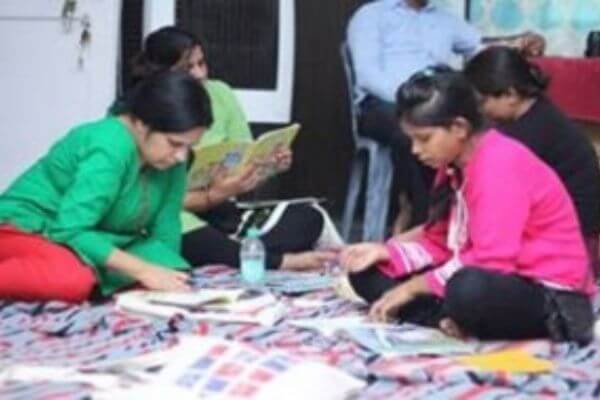
Loading...

Loading...
To promote reading for pleasure through use of children’s literature, Parag initiative of Tata Trusts has come up with first-of-its-kind professional development certificate course
After conducting a study of 15-20 non-profit organisations working on setting up or initiating libraries for children in rural areas, pan India in 2012, Parag initiative tried understanding key challenges that are faced in scaling quality programme.
The organisation figured one of the key gaps was to provide systematic training to facilitators.They also noted that library science courses in the country do not educate librarians on special requirements of setting up libraries for children. “Library science departments do not offer any course for children’s librarians and hence the field has remained underdeveloped,” says Swaha Sahoo, Head-Parag Initiative at Tata Trusts.
In 2013-14, team Parag designed their first pilot course for the librarians in Hindi.On realising that short term workshops and training were inadequate to bring about lasting changes, they came up with an idea of the Library Educator’s Course (LCE), a seven-months course for professionals. “LCE is open to all educators. It’s intended for librarians, development sector professionals, literacy educators and language experts,” affirms Sahoo.
The course has been designed to help practitioners to perceive library as an open creative space for all curricular areas, especially reading for pleasure.
Most government run primary schools don’t have a librarian’s post. However, Right to Education Act (2009) mandates that every elementary school should have a library. Librarians aren’t mere book keepers. They work closely with children and books, continues Sahoo, they should be called as library educators.
Although, it’s a shared responsibility of the teacher, librarian, and parent to introduce children to books and reading, a library educator can be the central pivot to start children’s lifelong friendship with books. A well-trained library educator understands the world of books and can encourage children to read and explore multiple genres, especially the children that come from non-literate homes. “We should definitely keep boards and exams out of the library or the library educator’s role,” says Sahoo, who was an education beat journalist for more than a decade before associating with Parag.
Offered in Hindi and English, the course is conducted in dual mode – contact sessions and distance mode. The Hindi course is offered directly by Parag whereas the English course is done in partnership with Bookworm, Goa.
The Hindi course starts in May whereas English in April. It has three contact periods totaling 12 days along with distance mode including course readings, assignments, field projects etc.
There are no tests. The students have to do four assignments which they have to submit over the course period and a field project at the end of the year, based on which they will be graded. They are also graded as per the class participation.
While some papers and sessions are planned differently every year, the vision and the focus of the course remains the same. “In the current LEC (Hindi) batch we have participants who have joined on recommendations by their colleagues, who happen to be our ex-students,” affirms Sahoo. LEC’s long term aim is to develop children’s libraries as a separate discipline and to establish the role of trained library educators as crucial to children’s growth and development.
For Hindi: Five days in May, four days in August, and the last one is in November for three days.
For English: Five days in April, four days in July and the last one is in October for three days.
The course has no upper age limit.
Each class consists of 30 students.
No fixed timings.
Fees (highly subsidized): 25,000/- for Hindi, 30,000/- for English. It can be paid in installments.

Reigniting the Love for Reading
On the first day of my job at Ankur, a comprehensive residential education programme, I was taken around the campus by a staff member…

We just winded up the second contact classes of the 3rd batch of Library Educator’s Course and one thing that stayed with me this time was the ‘need to talk’ about literature…